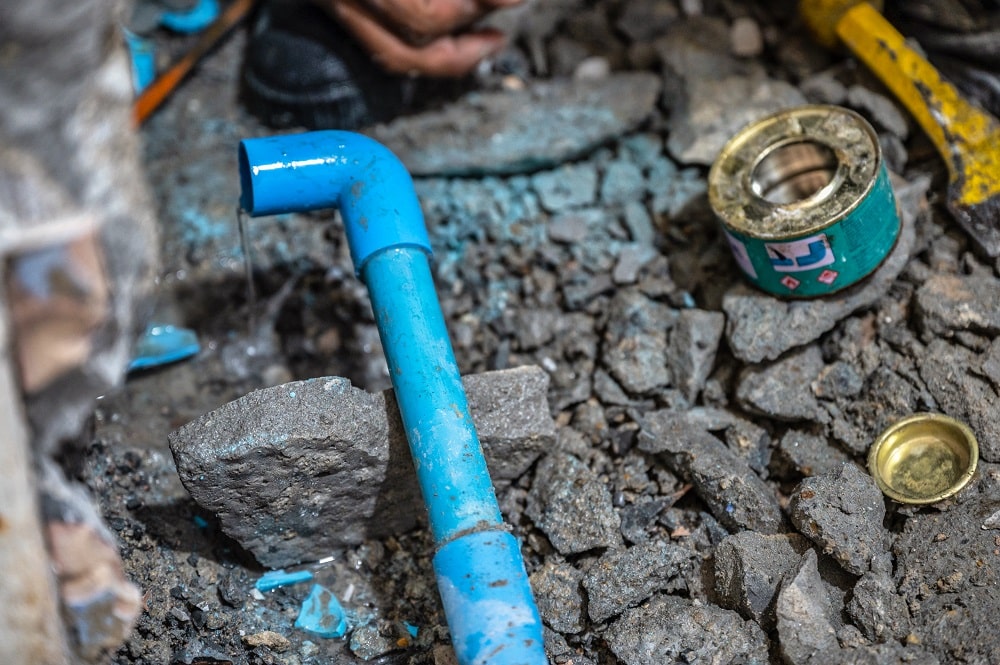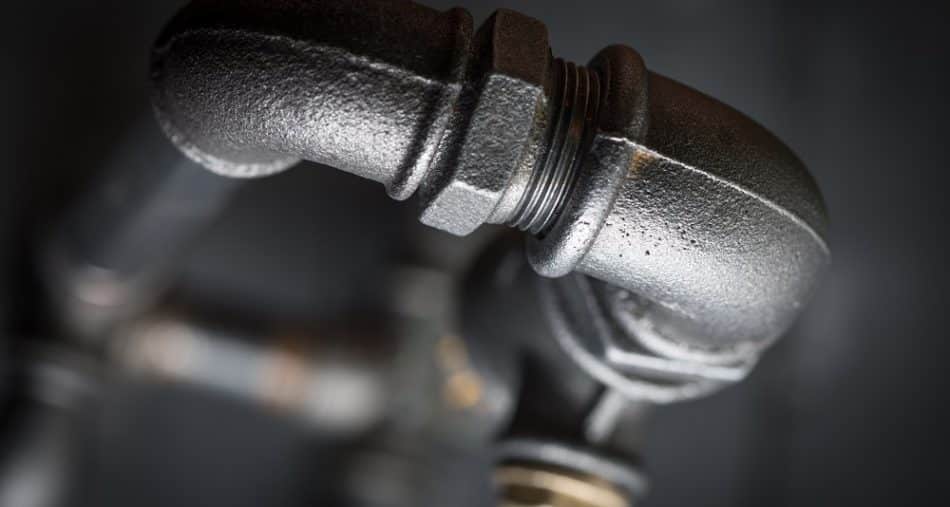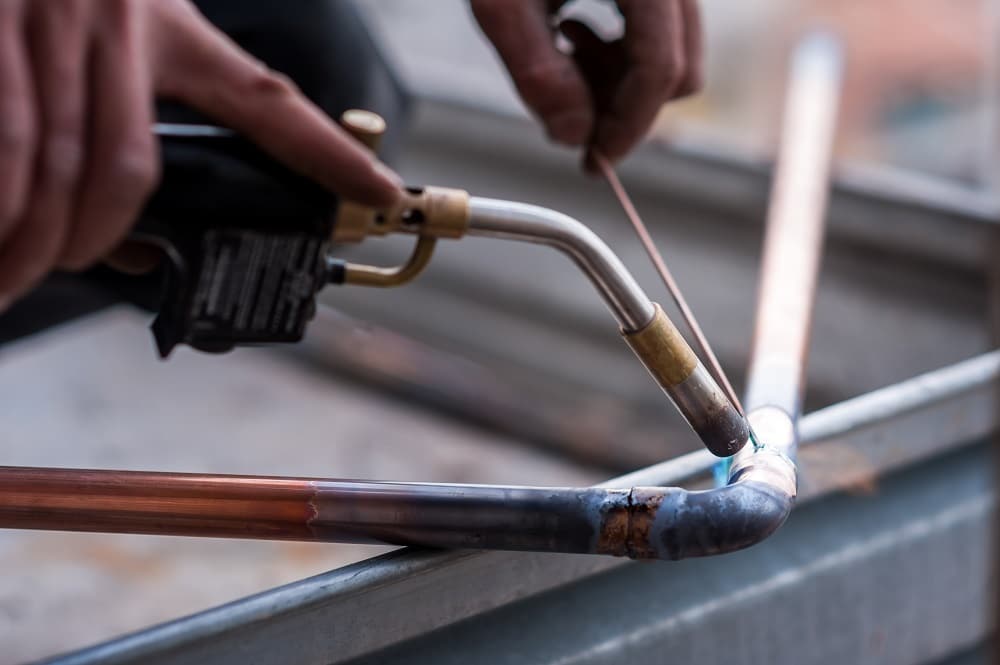Why Do Pipes Burst?
-
 tomsplumbing
tomsplumbing -
 0 Comment
0 Comment
Table of Contents
- Key Takeaways
- Causes of Pipe Bursts
- Identifying Frozen Pipes
- Types of Pipes That Burst
- How to Prevent Pipe Bursts
- What to Do If a Pipe Bursts
- Get Your Burst Water Pipes Fixed By a Professional!
Have you ever wondered why pipes suddenly burst, flooding your home? At Tom’s Plumbing and Drain Service, LLC, we understand how important it is to prevent these problems. Knowing why pipes burst can help you avoid costly repairs.
Let’s explore how high water pressure, freezing temperatures, and other factors contribute to pipe damage. By the end, you’ll be able to spot early warning signs and prevent a disaster.
Contact us today to schedule a plumbing inspection and make sure your pipes stay in top condition!
Key Takeaways
- Freezing, high water pressure, corrosion, and tree roots are the most common reasons pipes burst.
- Frozen pipes often show warning signs like no water flow, frost, or strange sounds.
- Act fast if a pipe bursts: shut off the main water, release pressure, and call a plumber.
- Preventive steps like insulating pipes, checking water pressure, and sealing air leaks reduce risks.
- Pipe type matters—PEX is more resistant, while copper, steel, and PVC need extra care.
- Regular inspections and maintenance can help you avoid costly damage and insurance claims.
- Professional help is the safest way to repair burst pipes and prevent future problems.
Causes of Pipe Bursts
Pipes can burst for several reasons. Understanding the causes can help you protect your home from water damage. Below are the most common causes:
Freezing Temperatures

To prevent this, insulate pipes in colder areas, keep your home warm, and let faucets drip during freezing weather. Pipes in unheated areas like attics, basements, and garages are most susceptible to freezing.
High Water Pressure
Water pressure, like air in a balloon, can cause pipes to burst if it becomes too high. While pressure regulators help control water pressure, they can fail during water spikes or plumbing issues. Older, more fragile pipes are especially vulnerable.
High water pressure can put strain on pipes, causing them to crack or leak. The recommended water pressure for most residential systems is between 40 and 60 psi. Regularly check your water pressure and make sure the regulator is functioning properly to prevent damage.
Corrosion in Pipes
Corrosion weakens pipes over time, leading to leaks or bursts. Factors like the water’s pH, high pressure, and temperature can speed up the corrosion process. In older homes, galvanized steel pipes are particularly vulnerable to rust and corrosion, which weakens the structure and makes them prone to failure.
Regularly inspect your pipes for discoloration, leaks, or flaking. Early repairs are more cost-effective than fixing a burst pipe. If corrosion is a concern, replacing older pipes can prevent future issues.
Tree Root Intrusion
In some areas, tree roots invade pipes, looking for water. These roots can block pipes or cause cracks, resulting in burst pipes. Tree roots are most likely to invade pipes that are already cracked or have loose joints, especially in older homes.
If you notice slow drains, foul odors, or gurgling sounds, tree roots might be causing a blockage. It’s best to call a plumber to remove the roots and repair the damage before it worsens.
Identifying Frozen Pipes
Frozen pipes are a common problem in winter.
Watch for the following signs to identify frozen pipes:
- No water flow from faucets
- Frost on the pipes
- Unusual sounds when using the tap
If you spot these signs, take immediate action to prevent the pipe from bursting. You can thaw the pipe with a hairdryer or heat tape, but if you’re unsure, it’s safer to call a professional plumber.
Immediate Actions for Burst Pipes
If a pipe bursts, act quickly to minimize damage.
Here’s what to do:
- Turn off the main water supply to stop further flooding.
- Clean up the water with towels and buckets.
- Call an emergency plumber for repairs.
Don’t forget to take photos of the damage for insurance purposes before cleaning up.
Preventive Measures
Taking steps to prevent pipe bursts can save you from expensive repairs.
Here are some ways to protect your plumbing system:
- Insulate your pipes, especially during cold weather. Use foam pipe insulation or heating cables to protect exposed pipes in unheated areas.
- Let faucets drip during freezing temperatures to reduce pressure inside the pipes. Dripping faucets help relieve pressure and prevent pipes from freezing.
- Seal cracks in your home to block cold air from reaching your pipes. Check windows, doors, and walls, particularly in unheated areas like basements and attics.
Types of Pipes That Burst
Different types of pipes respond differently to temperature changes and pressure.
Here’s a breakdown of how each type handles stress:
Metal Pipes (Copper & Steel)
Copper pipes, being rigid, are more prone to bursting under high pressure or extreme temperature changes. They also corrode over time, making them weaker. Galvanized steel pipes, common in older homes, are more likely to corrode and develop weaknesses. Regular checks and replacements are essential for these types of pipes to avoid sudden failures.
PVC Pipes
PVC pipes are flexible, but cold weather can make them brittle. When water inside freezes, they can crack or burst. Insulating these pipes, especially in colder climates, can help prevent freezing and reduce the risk of damage.
PEX Pipes
PEX pipes are highly flexible and resistant to freezing. They don’t burst easily and can handle temperature changes well. Additionally, they don’t rust, making them a good choice for long-lasting plumbing systems, especially in areas with fluctuating temperatures.
How to Prevent Pipe Bursts
Prevention is always the best approach. Here’s how you can protect your pipes from bursting:
Insulating Pipes
Wrap your pipes with foam or bubble wrap insulation to protect them from freezing. Use insulation with a high R-value for the best protection. Cover both hot and cold pipes, especially in areas prone to freezing temperatures.
Regulating Water Pressure
High water pressure can put excessive strain on pipes, leading to bursts. Install a pressure regulator to maintain safe water pressure levels. If you notice a change in pressure, call a plumber to adjust the settings.
Regular Maintenance
Regular maintenance is key to preventing bursts and keeping your plumbing system in good working order. Flushing pipes and replacing old, corroded pipes can help prevent damage and improve the overall performance of your plumbing.
What to Do If a Pipe Bursts
If a pipe bursts in your home, quick action can save you from serious damage.
Follow these steps:
Turn off the water supply immediately to stop more flooding.
- Open faucets to release pressure and prevent further damage.
- Turn off electricity in the affected area for safety.
- Contact a plumber to repair the damage as quickly as possible.
- Document the damage with photos for your insurance claim.
Most home insurance policies cover water damage caused by burst pipes, so be sure to report the incident promptly.
Get Your Burst Water Pipes Fixed By a Professional!
Knowing how to handle burst pipes can save you a lot of time, money, and stress. By staying proactive with maintenance and regular inspections, you can prevent most issues before they occur.
Act now to protect your home. Inspect your pipes today and make sure your plumbing system is in good shape.
Call us at Tom’s Plumbing and Drain Service, LLC to schedule your pipe inspection and avoid the risks of burst pipes!



